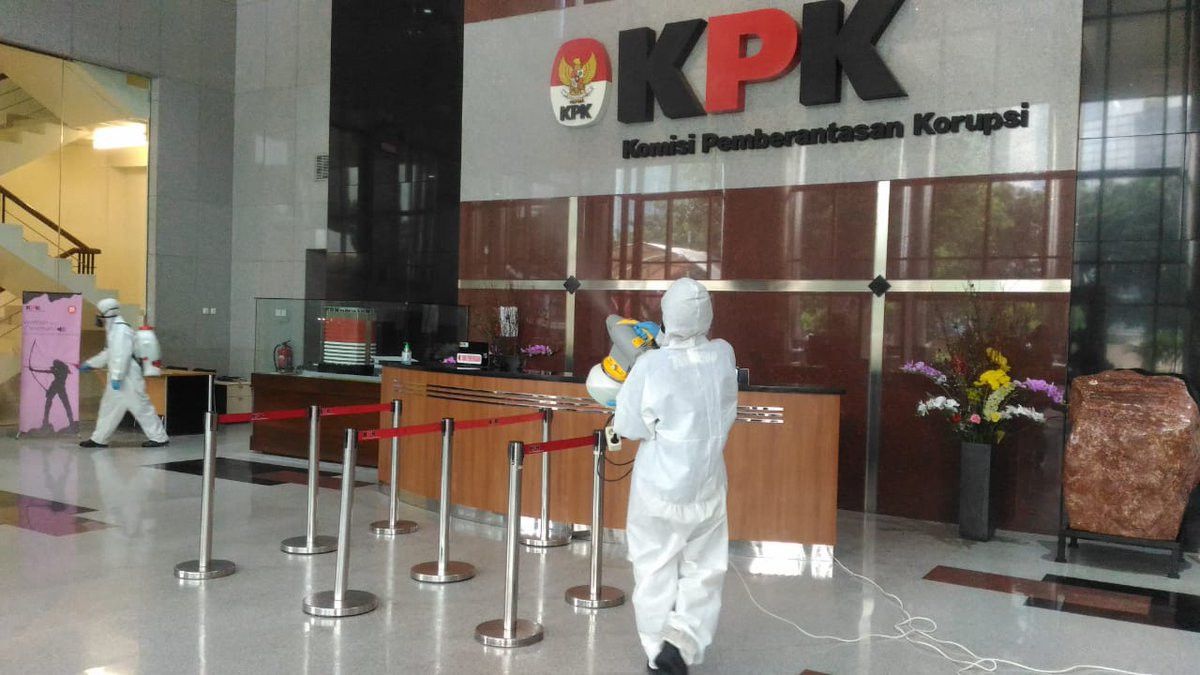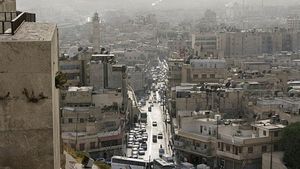JAKARTA - Many government officials are caught in legal cases. This short article will explain several examples of recent criminal law cases involving several state officials.
In general, the definition of criminal law itself is a rule that regulates all matters concerning crimes and violations of the public interest. Here are some reviews regarding criminal law.
Definition of Criminal LawIn the book Introduction to Law, WPJ. Pompe explained that the notion of Criminal Law is all rules that are (at least more or less) general and abstract originating from concrete circumstances.
Meanwhile, legal expert Wirjono Prodjodikoro explained the notion of criminal law as a legal rule regarding crime.
The word "criminal" is interpreted as "being convicted by a certain institution which has power over a person (unscrupulous) over a situation that causes other people to feel bad.
Thus, criminal law is a collection of rules that determine what actions are classified as criminal acts and what kinds of penalties can be imposed on those who commit them.
Then the state which is the highest organization has the authority to determine and implement the criminal law. The laws of a country can bind all citizens in a country for the sake of the implementation of public order.
Indonesia, with its own slogan of "rule of law" until early 2021, still does not have a National Criminal Code (KUHP). Although the Draft Criminal Code (RKUHP) itself is already owned and is still waiting for the Priority Prolegnas in 2021.
Before the RKUHP was approved and enacted, Indonesia was still implementing the Criminal Code (Wetboek van Strafrecht) from the Dutch Colonial Government which was a legacy of colonies.
Corruption Criminal Law Cases in IndonesiaIn this period of approximately two decades or after the fall of the New Order government, corruption cases have become a special concern of Indonesian law enforcement officials.
Former Deputy for Information and Data from the Corruption Eradication Commission (KPK), DR. M. Syamsa Ardisasmita, DEA explained that corruption, collusion and nepotism (KKN) are mostly carried out by government agencies through the procurement of goods and services.
Syamsa explained that the indications of corruption, collusion and nepotism are indicated by many leaks of government projects that are not on time, on target, are not of the right quality, and are also inefficient.
The law that regulates criminal acts of corruption in Indonesia is contained in 13 articles in Law Number 31 of 1999 which have been amended by Law Number 20 of 2001 concerning the Eradication of Corruption Crimes.
The KPK, thus becomes an institution that has the authority to conduct studies and prevention of acts of corruption in the procurement of government goods and services.
Example of Corruption Criminal Law Cases in Indonesia: Bansos Ministry of Social AffairsPreviously, VOI had written an article entitled Social Minister Juliari Arranged for Article 12 of the Corruption Act, not Article 2 which Threats the Death Penalty, This is the Explanation of the KPK.
The corruption case of COVID-19 social assistance is certainly quite surprising to the public, especially when it involves high-ranking state officials at the same level as ministers.
Reflecting on the case, KPK Chairman Firli Bahuri said that Minister of Social Affairs Juliari Batubara was charged with Article 12 letter a or Article 12 letter b or Article 11 of Law Number 20/2001 concerning Eradication of Corruption in conjunction with Article 55 paragraph 1 of the Criminal Code.
Corruption of Social Assistance, Juliari Batubara can be sentenced to deathThe article mentioned by the KPK chairman threatened Juliari Batubara with a maximum sentence of life imprisonment (or a minimum of 4 years).
Previously, Juliari had been named by the KPK as a suspect in the COVID-19 social assistance corruption. Juliari is accused of having received tens of billions of money from partner companies in the provision of social assistance (bansos) for basic food packages.
Juliari can be charged under Article 2 paragraph 2 of Law 31 of 1999Juliari Batubara has committed acts of corruption and is under penalty of death because this was done when the country was in an emergency response situation for the COVID-19 pandemic.
The KPK explained that Juliari's connection could be charged with Article 2 paragraph 2 of the Corruption Eradication Law which could potentially be sentenced to death penalty for the perpetrators.
Based on the explanation from the Corruption Eradication Commission, Juliari's corruption act referred to Law 31 of 1999, Article 2 paragraph 2, which contains the threat of the death penalty.
However, even though Article 2 paragraph 2 of Law 31 of 1999 clearly describes the death penalty for corruption perpetrators, the KPK is still investigating the social assistance corruption case related to the goods and services mechanism that is connected to the act of corruption.
COVID-19, which in 2020 entered Indonesia, has been declared a National Disaster in April 2020. This is as stipulated in Presidential Decree No. 12/2020 concerning the Determination of Non-Natural Disasters for the Spread of COVID-19.
In addition to explanations and examples of criminal law cases in Indonesia, follow the news on developments in social assistance corruption cases as well as news from within and outside the country only at VOI, Time to Revolutionize the News!
The English, Chinese, Japanese, Arabic, and French versions are automatically generated by the AI. So there may still be inaccuracies in translating, please always see Indonesian as our main language. (system supported by DigitalSiber.id)








